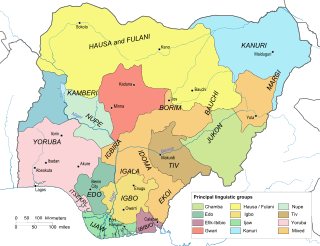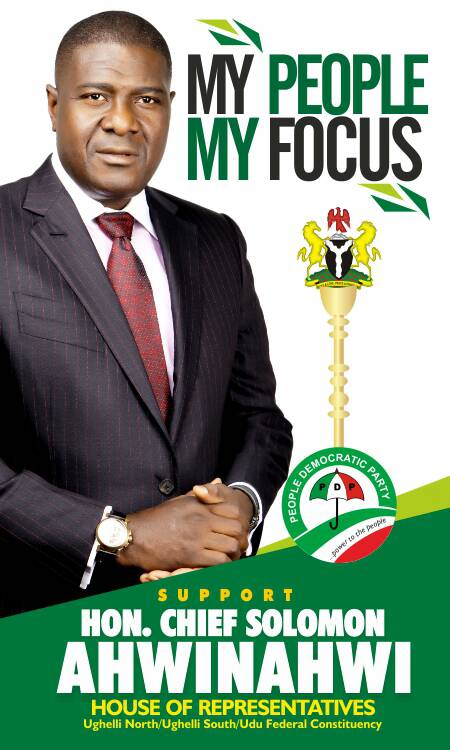Opinion
THE ISSUE OF INTEGRITY AND NIGERIAN POLITICAL LEADERS – DO THEY REALLY HAVE INTEGRITY?

By Zik Gbemre
It is an established fact that majority of the Nigerian politicians who are or were in Government across all levels, including those at the National and State Assemblies as well as other public office holders; do not understand what it means to lead as Public Servants. If they do, we are certain that Nigeria will not be where it is presently. While some of them are there for the wrong selfish reasons, others were scripted or dragged to occupy sensitive political leadership positions they were never ‘prepared’ to handle, or even understand fully, how to carry out the responsibilities thrust on their shoulders.
At the end of the day, what we have in our hands over the years, are politicians who have no iota of idea of what it truly means to lead a people, manage the enormous collective resources/wealth under their offices for the benefit of all, and eventually leave great legacies behind for generations to come. This has been the lacuna, the missing gap in Nigeria’s political governance history.
Having looked at this carefully, we have come to the conclusion that there is only one ‘leadership ingredient’, which has been missing in the majority of Nigeria political leaders, and which has made us to have public office holders who are more often than not; say one thing and then do something else entirely in carrying out their statutorily functions. And that one leadership ingredient that is lacking amongst them, is the issue of PERSONAL INTEGRITY. Or call it Personal Code of Conduct/Ethics, which practically defines one’s daily decision-making process. And most importantly, it points to how one relates to all the people one comes in contact with and humanity as a whole – in relation to one’s position/office occupied in the public space. It is really a sad situation, that if we look around at all Nigerian public office holders, both at the Federal, State and Local Government levels, all we see are persons that are without integrity and personal code of conduct/ethics. And that is why many of them are without any iota of shame, even in a face of obvious dereliction of their statutorily functions, or alleged corrupt practices hanging on their necks.
As it is in Nigeria’s public space, so it is in most African countries. In other words, this problem/issue of political leaders not having personal integrity/personal code of conduct/ethics, is predominantly evident in black African countries. Whereas, in other developed climes, we see a different attitude demonstrated by their public office holders when it comes to integrity.
We stumbled into a short video recently by a Kenyan newscaster, who, in what she called ‘Jamila’s Memo’, reeled out some thought-provoking points on the subject matter of Leadership and Integrity, using the examples in her country Kenya (which is very similar with what we have in Nigeria), and compare same to what obtains in other developed societies. We strongly believe it is something that is worth learning from. In her words: “In Egypt, the Transport Minister, Hisham Arafat, resigned in late February 2019 after a deadly train crash in Cairo killed at least 25 people and left 50 others injured. Please, understand that it is not the Minister who was driving the ill-fated train. But he resigned.
In India, the Railway Minister, Nitish Kumar, resigned after two trains collided. Noting that the accident was more about criminal negligence than human error. That human error, which the Minister claimed ‘full moral responsibility for’, was not committed by the said Minister himself. But he resigned anyway. In June 2016, UK Prime Minister, David Cameron, resigned after a referendum vote by the UK to leave the European Union (EU). He had wanted his country to remain in Europe, but his people said otherwise, and he had to go. In that same country, a member of The House Of Lords, quit his government position after turning up late to answer questions. Saying, he was thoroughly ashamed of himself. Yes, thoroughly ashamed for simply arriving late in Parliament to answer questions.
“Now, at this time when scandals worth billions of shillings decorate the pages of our newspapers every morning, one would have expected a flow of resignations by those concerned. NOT BECAUSE OF ANY WRONG DOING, BUT SIMPLY TO TAKE RESPONSIBILITY because there is always a place where the bulk stops. But we are in Kenya, and we clearly recall, for instance, the words of former Finance Minister, Amos Kimunya: “I would rather die than resign.” He was under sieged in Parliament of alleged improprieties over the sale of what is now Regency hotel. He went to address the gathering of his supporters and made the now famous vow. In 2006, he was being questioned over some scam, the then Kenyan Vice President, Moody Awori, said: “I will not resign. Who is my accuser, and on what charge?” A
of the Constitution describes in great details of the kind of leadership Kenyans need and deserve. It does not expressively ask anyone to resign, but the words there speaks for themselves. Words like ‘Personal Integrity’, ‘Competence’, ‘Objectivity and impartiality.’ THE OATH OF OFFICE TAKEN BY HOLDERS OF OFFICE IS A PROMISE BEFORE GOD AND THE PEOPLE; TO UPHOLD SOVEREIGNTY, INTEGRITY AND DIGNITY OF THE PEOPLE of Kenya. As well as to do justice to all, in accordance to the Constitution. While taking the oath, the leaders also promise to diligently serve the people, and it ends with the famous Four words: “SO HELP ME GOD.” But today, it is perhaps the citizens who need God’s help the most because the rate of looting is unprecedented.
“The audacity with which public resources is being pilfered is mind boggling. And yet, they are merely men, supposedly put in place by the people. Under law, to watch over public Office. The Constitution predisposes that when we go for election every five years (in the case of Nigeria every four years), we look for Kenyans who will fit this bill. But am not holding my breath. When the time comes for another election, we shall once again, leave the comfort of our beds at 3am (for Nigeria it is 8am) to queue and elect the very same leaders – leaders who would rather die than resign. Are we not tired? Are we not angry enough? Or are we just stupefied or dazed?”
Nothing best describes the exact, and even worse situations we find in Nigeria’s public space and governance, like what is described above in our East African brother, Kenya. We have all seen it all. From public Office holders who would rather die than resign from Offices they have woefully failed in the discharge of their duties, and even in the face of alleged corrupt practices, to blatant and deliberate flouting of Court Orders, gross negligence of statutorily duties, complete disregard for corporate code of conduct/ethics, and not owning up to ones responsibilities – in relation to the Office they occupy and public expectations. Also, during elections, we see the same set of irresponsible politicians fighting tooth and nail to have themselves ‘recycled in the country’s public space’ to continue from where they stopped. IT IS ONLY IN NIGERIA THAT WE HAVE A SITUATION WHERE, THE POPULATION OF THOSE WAITING TO STEAL IS FAR HIGHER THAN THE POPULATION OF THOSE CURRENTLY STEALING IN GOVERNMENT. THIS PATHETIC REALITY OF THE NIGERIA SITUATION, OFTEN MAKES ONE TO WONDER IF THE ROT IN THE POLITY WOULD EVER BE ADDRESSED AND REDUCED TO THE BAREST MINIMUM LEVEL.
It is no news that corruption, inept and self-centered political leadership at all levels of Government have been the bane of Nigeria’s development as a supposed ‘GIANT OF AFRICA’, despite the country (and all its States) being blessed with vast and enormous human and natural resourcefulness. Every time we take a critical look at the Nigeria of our today, it is sad to note that the dreams of our Nigerian Founding Fathers have all been crushed. It makes one to wonder what happened to us? The close to two decades of Military dictatorship plus the advent of Civilian administration since 1999 till date, have left a Nigerian populace that is more disappointed with its political leaders than before. And the only reason we can come up with to explain this anomaly is the fact that most of the Nigeria’s past and present political leaders, are either in the category of those who do not have any well-defined ‘PERSONAL INTEGRITY/CODE OF CONDUCT,’ but still exhibit the wrong set of conducts, or those who actually have Personal Code of Conduct that is absolutely wrong and against the Ethics of Good Governance. You would be surprised to find out that there are those in Nigeria’s public space, whose personal Code of Conduct is to steal/misappropriate public funds at any given opportunity, regardless of the consequences of their actions.
Not withstanding though, Nigeria has had its fair share of ‘very few’ admirably-good political leaders that exhibited Personal Integrity and having the right set of Personal Code of Conduct/Ethics, while in sensitive public office positions. But the number of those who are the ‘bad eggs’ with the wrong set of conducts, far outweigh that of the good. The funny thing is that it is actually easy to see and know those who have exhibited the lack of Personal Integrity and lack of Personal Code of Conduct/Ethics. As it is said, “By their Fruits we shall know them.” This is why we are wishing, if only our Nigerian present and future political leaders at all levels of Government and the Legislature, would be like some of those we know around the world that have exhibited exemplary attributes of Personal Integrity and Personal Code of Conduct/Ethic – based on the profound legacy some of them have left behind, and some are still exhibiting. We have focused on some of these persons in our past write ups. The likes of Nelson Mandela of South Africa, John Pombe Magufuli of Tanzania, etc. In fact, we believe that if our Nigerian political leaders, especially those at the State levels of Government and in the Federal legislature, would imbibe and emulate the kind of Personal Code of Conduct/Ethics exhibited by these stated examples in their style of Governance, we are very certain that the Nigeria of today, would be the ‘Dubia Of Africa’ in all ramifications.
Zik Gbemre.
We Mobilize Others To Fight For Individual Causes As If Those Were Our Causes



